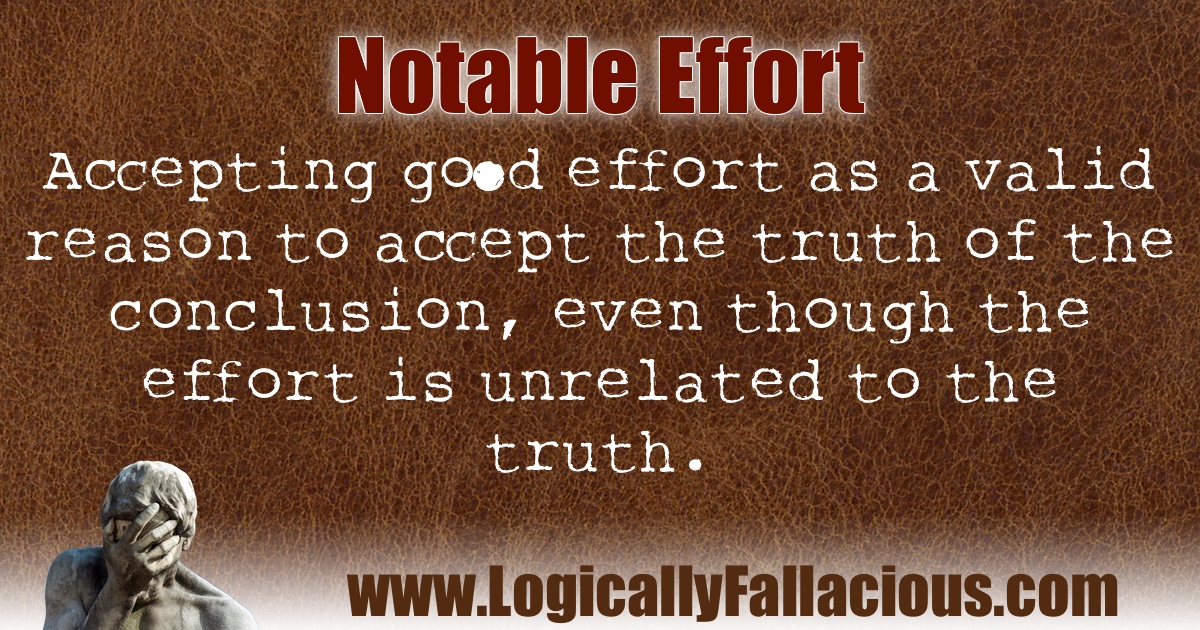(also known as: “E” is for effort)
Description: Accepting good effort as a valid reason to accept the truth of the conclusion, even though the effort is unrelated to the truth.
Logical Form:
Person 1 made a notable effort to prove Y.
Therefore, Y is true.
Example #1:
Judge: In all my years as a federal judge I have never seen a defendant make such a good effort to prove his innocence. As a result, I rule for the defendant.
Explanation: The fact that the defendant made a good effort to prove his innocence means nothing to the fact that he is actually innocent or not—unless he succeeded in his efforts. The judge's ruling would be based on emotion and not reason.
Example #2:
How can you possibly deny his claim? William wrote an entire book trying to explain why he thinks his claim is true. Therefore, it must be true.
Explanation: The fact that William made a notable effort to prove his claim does not mean that he did.
Exception: As long as the effort is unrelated to the truth of the claim, there are no exceptions.
Tip: Enough with the “everyone’s a winner” mentality. As long as we keep rewarding all effort, we devalue the effort that leads to successful results. The world needs losers as well -- just don’t be one of them.

This a logical fallacy frequently used on the Internet. No academic sources could be found.